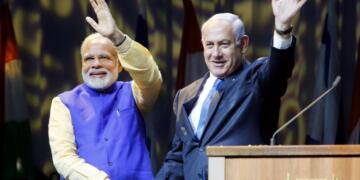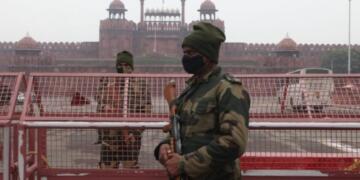Prime Minister Narendra Modi is expected to inaugurate the long-awaited Vande Bharat Express train service from Katra in Jammu to Baramulla in Kashmir on June 6, marking a historic milestone in India’s railway expansion and regional integration.
According to officials, all final preparations have been completed for the inaugural run of the high-speed Vande Bharat Express through the scenic but challenging terrain of the Jammu and Kashmir region. PM Modi is set to flag off the train from Katra and also inaugurate the Baramulla-bound service virtually.
Originally scheduled for April 19, the launch was postponed due to bad weather. Now, with favorable conditions and enhanced security measures in place, the green signal is likely to be given in just a few days.
A Landmark for Connectivity and Pilgrimage
The launch comes just ahead of the annual Amarnath Yatra, set to begin on July 3. The new train service is expected to be a major relief for pilgrims, who often face disruptions on the frequently blocked Jammu-Srinagar highway due to landslides or weather. Authorities have also indicated that additional special trains may be run during the Yatra season to manage peak crowds and ensure smooth travel.
The Prime Minister will also visit iconic engineering feats, including the world’s highest railway bridge over the Chenab River and the first cable-stayed railway bridge in Reasi district, before addressing a rally at Katra Stadium.
Economic and Social Impact
The launch of the Vande Bharat Express, a showcase project of Modi government, to Kashmir will have significant economic and social benefits for the region:
Boost to Horticulture and Agriculture: Faster and more reliable transport will enable Kashmir’s horticultural produce—especially apples, walnuts, and saffron—to reach broader markets across India, reducing spoilage and increasing farmers’ profits.
Tourism Revival: Improved accessibility is expected to rejuvenate tourism in the Valley, bringing in more domestic and international visitors, especially to destinations like Gulmarg, Pahalgam, and Sonmarg. Hospitality and allied sectors are likely to see a surge in demand.
Job Creation and Industry Growth: Enhanced rail connectivity will reduce logistical costs, encouraging new investments in local industries, warehousing, and trade. This could generate employment and uplift economic activity in towns along the railway route.
Educational and Social Integration: With better transportation, students and professionals will have easier access to institutions in and outside the region, promoting greater academic and cultural exchange. The psychological distance between Kashmir and the rest of India may also narrow as physical infrastructure improves.
National Integration: The project, over 70 years in the making, is symbolic of Kashmir’s integration into India’s broader developmental roadmap. The long-envisioned dream of connecting Kashmir to Kanyakumari by rail is now within reach.
Engineering Marvel and Strategic Importance
The 272-km Udhampur-Srinagar-Baramulla Rail Link (USBRL) has been under development for decades, with 209 km already commissioned in stages since 2009. The final stretch—between Reasi and Katra—was completed recently, following successful trials, including one during Operation Sindoor, which transported Army personnel to Srinagar.
The ₹41,000 crore project has required complex engineering due to the rugged Himalayan terrain, including the construction of the Chenab Bridge and the Anji Khad Bridge—both of which are globally recognized feats of civil engineering.
Currently, passengers traveling from other parts of India will need to change trains at Katra, though full connectivity from Jammu to Baramulla is expected by August or September, once platform expansion at Jammu station is complete.
A New Chapter for Jammu and Kashmir
This will be the third Vande Bharat train introduced in Jammu and Kashmir, and the first to enter the Kashmir Valley. The specially designed semi-high-speed train is poised to revolutionize travel for residents, tourists, and businesses alike.
With this development, Kashmir steps into a new era—of better integration, enhanced opportunity, and accelerated progress. As Prime Minister Modi is expected to inaugurate this service on June 6, the region may finally witness the realisation of a decades-old aspiration: seamless rail connectivity with the rest of India.
























